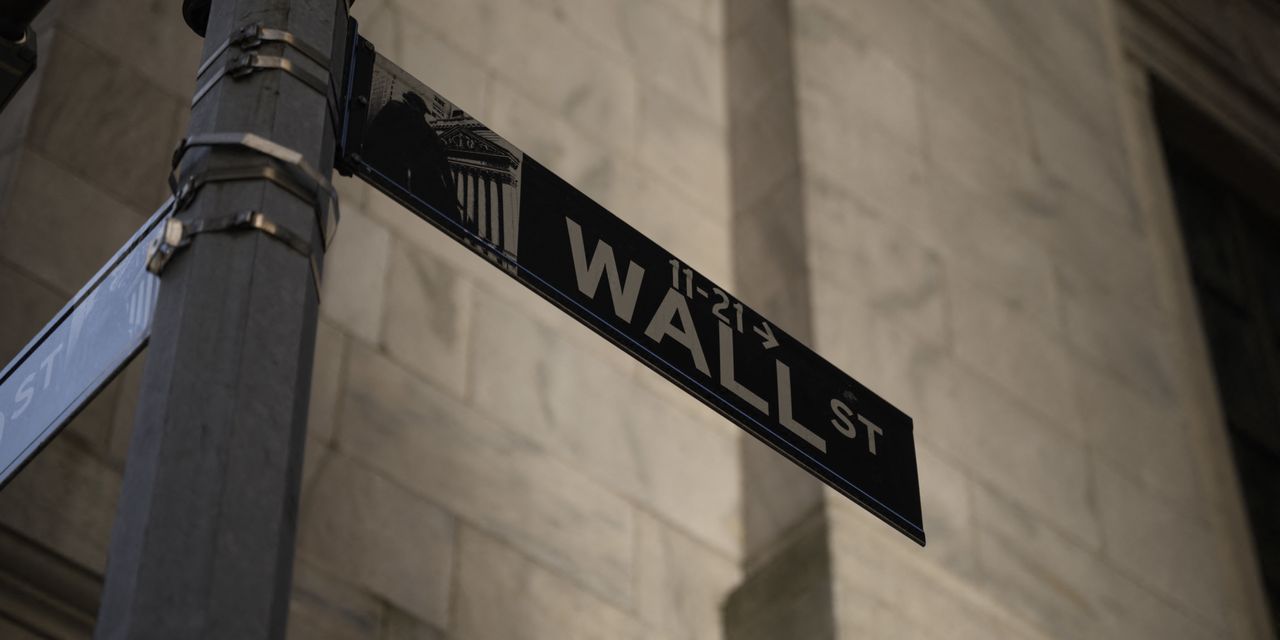The stock market was falling again Thursday, as investors were fretting about the impact of inflation and the Federal Reserve’s monetary policy on the economy.
The latest inflation data to hit the wires didn’t help ease investors’ concerns. The producer price index rose 11% year-over-year for April, the Labor Department reported Thursday, above estimates for 10.7% and a tick lower than March’s increase of 11.2%.
The problem for the stock market is that, as companies’ costs rise, they have to raise selling prices, contributing to more consumer inflation—and emboldening the Fed to move faster in lifting interest rates, a threat to economic and earnings growth. Plus, some companies can’t lift prices enough and their profit margins get hit.
The PPI result looked a lot like Wednesday’s consumer price index result, which fell from March, but not by very much. Inflation is sticking around.
“We’ve likely too seen the peak in the rate of change in wholesale prices but price pressures are still pretty intense,” wrote Peter Boockvar, chief investment officer of Bleakley Advisory Group.
The CPI’s year-over-year gain was 8.3% for April, below the March result, but higher than expected. Markets are having to grapple with the fact that inflation is not declining very quickly, which could force the Federal Reserve to lift short-term interest rates faster than currently expected. The ultimate result? A recession.
Now, “another risk off day is here,” wrote NatAlliance Securities’ Andrew Brenner.
The losses come following inflation-induced declines on Wednesday, which caused all three indexes to sell off, with the Nasdaq down more than 3%.
Overall, the stock market has made one thing clear in the last few trading days: it isn’t finished reflecting the economic risks. Now below 4,000, the S&P 500 has fallen beneath key levels at which at had previously found buyers to bring it higher. That opens the door for the index to potentially fall to below 3,700 soon, wrote Frank Cappelleri, chief market technician at Instinet.
Other indicators point to further declines, too, as valuations still look too high. The S&P 500’s cyclically adjusted price-to-earnings ratio, which shows the index’s level divided by its average inflation-adjusted earnings over the past 10 years, is just a touch above 35 times, according to 22V Research.
That’s down from a multi-decade peak of almost 39, hit during the pandemic era. But historically, that ratio usually declines much more from a peak to a bottom. The indication is that the decline in the ratio isn’t even halfway over. The reason—fundamentally—is that the risk to the economy points to risk to earnings, and stock prices are still moving lower in order to reflect the potential for lower earnings than currently expected.
“When selling becomes the main negative catalyst (not fundamentals) it’s very difficult to say when it’ll stop (it usually takes a solid piece of macro news and we haven’t received any in a while),” wrote Tom Essaye, founder of Sevens Report Research.
Overseas, the pan-European
Stoxx 600
declined 0.8%, and Tokyo’s
Nikkei 225
ended 1.8% lower.
While the selloff has been pronounced in stocks, it has been felt even worse in the digital asset space.
Bitcoin,
the largest cryptocurrency, lost 13% over the past 24 hours, trading below $28,000 and down by more than a quarter since a week ago. Smaller cryptos, including
Ether
and
Dogecoin,
saw declines upward of 20%.
Here are six stocks on the move Thursday:
Companies that have tied their fortunes to Bitcoin have been trading wildly. After a 26% plunge on Wednesday—following disappointing earnings and a warning to its customers—crypto exchange
CoinbaseGlobal
(ticker: COIN) was 0.3% higher Thursday. Software group
MicroStrategy
(MSTR), which has significant Bitcoin holdings fell 4.3% after a 25% slide in the last session.
applovin
(APP) lowered its estimate for full-year sales, but shares jumped 35% after executives at the app-monetization company raised the possibility of selling the apps business.
Beyond Meat
(BYND) stock initially dropped, then rose 1.1% after reporting a larger-than-expected loss.
Rivian Automotive
(RIVN) stock jumped 17% after the company reported a loss of $1.77 a share, wider than estimates of $1.45 loss per share, on sales of $95 million, below expectations for $133 million.
waltdisney
(DIS) stock fell 2.6% after the company reported a profit of $1.08 a share, missing estimates of $1.19 a share, on sales of $20.27 billion, above expectations for $20.05 billion.
Write to Jacob Sonenshine at jacob.sonenshine@barrons.com and Jack Denton at jack.denton@dowjones.com
